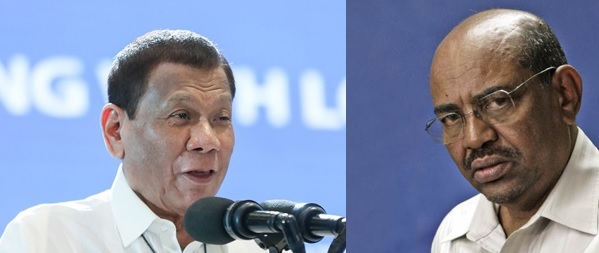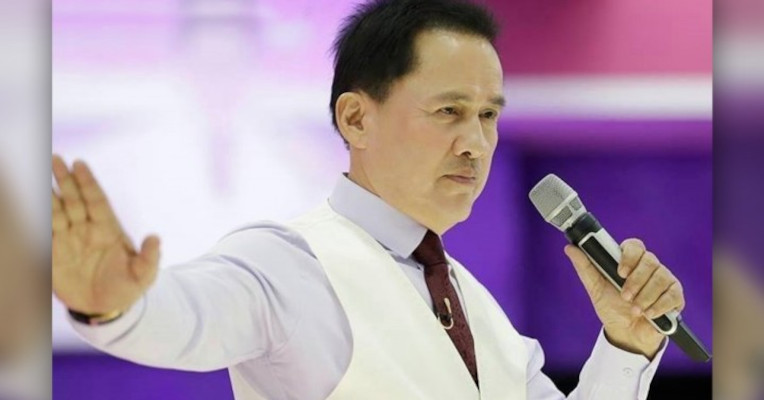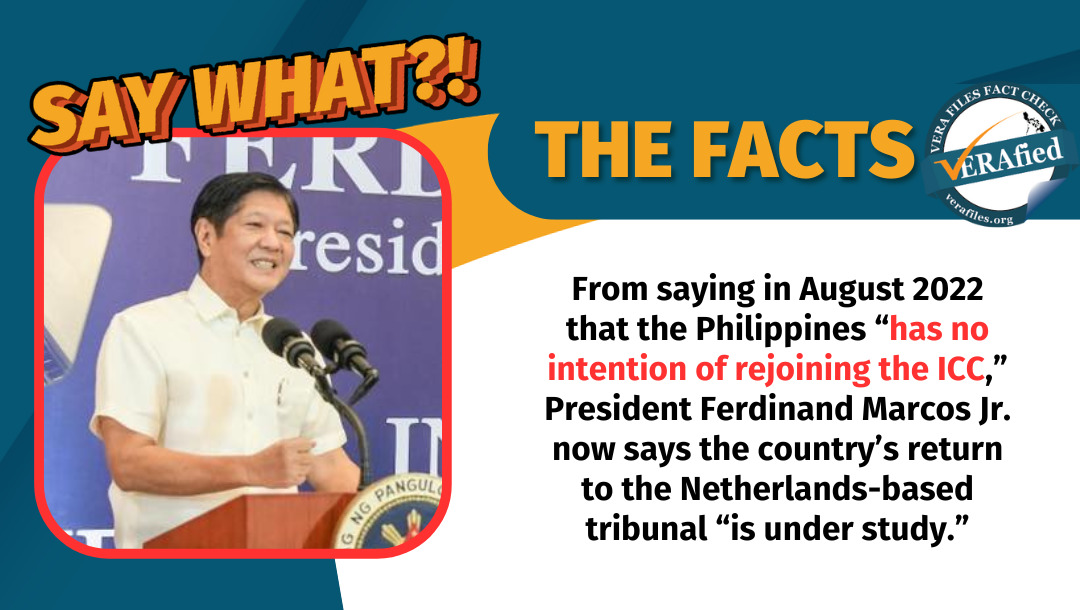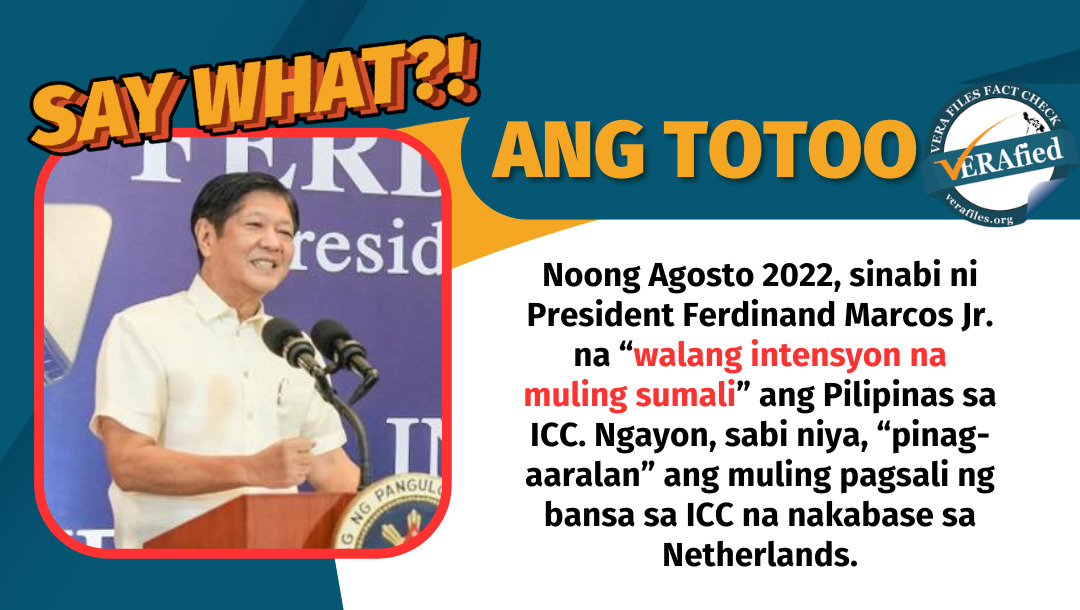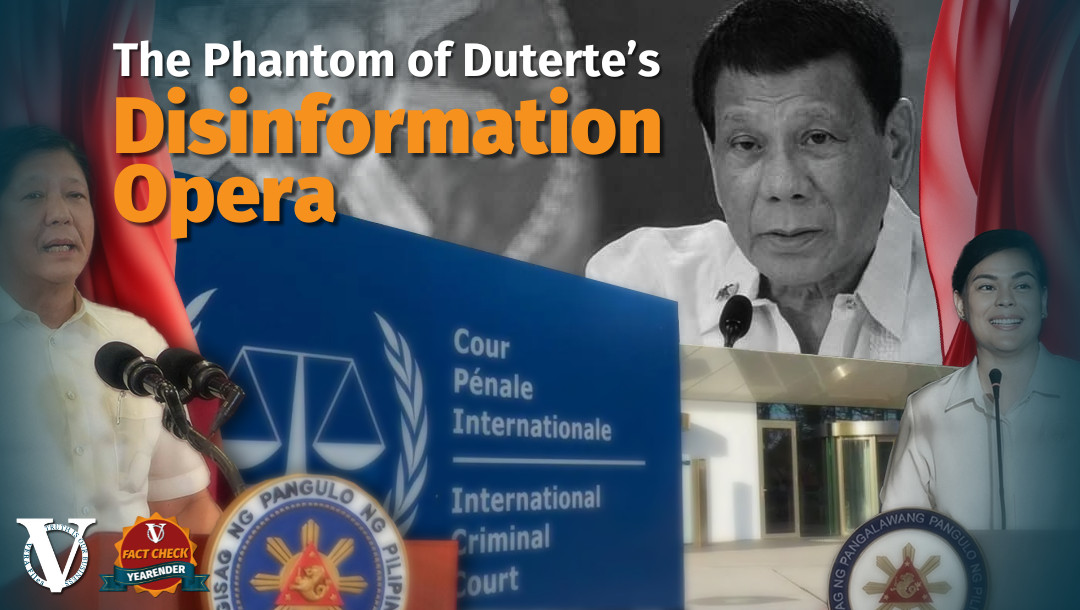Late last year, a group of human rights advocates from the Philippines were in The Hague for a conference. The guest speaker was Fatou Bensouda, prosecutor of the International Criminal Court.
A member of the Philippine delegation said at the end of the conference they had their usual “photo ops.” He said Bensouda’s face lighted up when she learned they were from the Philippines. She told them with conviction: “I am going to Manila next year.”
Bensouda’s remark is an indication of the high probability that the complaint against President Duterte and officials involved in the bloody war on drugs filed with the ICC wouldadvance into the investigation stage this year. That will necessitate her coming to the Philippines to conduct the investigation.
It will be recalled that in the December 2019 report of her office’s preliminary examination activities, Bensouda said: “During the reporting period, the Office significantly advanced its assessment of whether there is a reasonable basis to proceed under article 15(3) of the Statute. During 2020, the Office will aim to finalize the preliminary examination in order to enable the Prosecutor to reach a decision on whether to seek authorization to open an investigation into the situation in the Philippines.”
President Duterte has said several times that he will not allow Bensouda in the country.
Time is not on the side ofDuterte who has less than three years left as president. No one can be sure what will happen after 2022. Or even before 2022.
Just look at what is happening in Sudan and the former strongman Omar al-Bashir.
Last week, news reports said al-Bashir., who was deposed in April 2019and is currently in prison, will be handed over by the Sudan government to the ICC to be tried for five counts of crimes against humanity and two counts of war crimes in connection with the atrocities committed in the military campaign in Darfur between 2003 and 2008.
Al-Bashir was in power in Sudan for 30 years and had ignored ICC’s arrest warrants issued in March 2009 and in July 2010.
News reports, quoting a member of Sudan’s current ruling sovereign council, said all Sudanese wanted by the ICC would appear before the court in The Hague.
The al-Bashir report must be sending shivers down the spine of those who are implicated in the extrajudicial killings related to Duterte’s war on drugs.
Lawyer Romel Bagares, in his December 2019 commentary in VERA Files said “Bensouda’s report zeroes in on President Duterte and top officials of the Philippine National Police and other government bodies that “actively promoted and encouraged the killing of suspected drug users and dealers” without due process.
Bagares further said if ICC Chief Prosecutor Fatou Bensouda finds enough evidence, “at the earliest, formal charges for international crimes may be brought, and an arrest warrant issued, against President Duterte and key officials of his deadly tokhang campaign by the end of this year.”
Duterte and his accomplices may delay the inevitable by seeking refuge to a place out of reach of the ICC. There’s one that we can think of: China.
Could this be the reason for Duterte’s moves that defy reason and national interest like reluctance in issuing a travel ban to and from China in the midst of the novel coronavirus crisis and when he decided on the ban, he included Taiwan, and cancellation of the Visiting Forces Agreement with the United States despite contrary recommendations by members of his cabinet?
